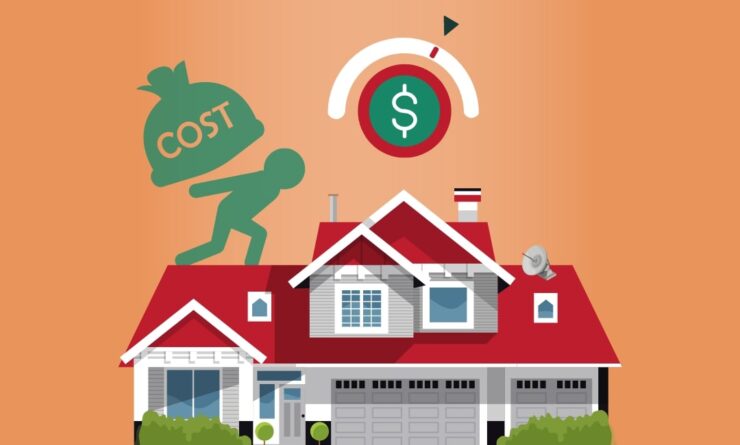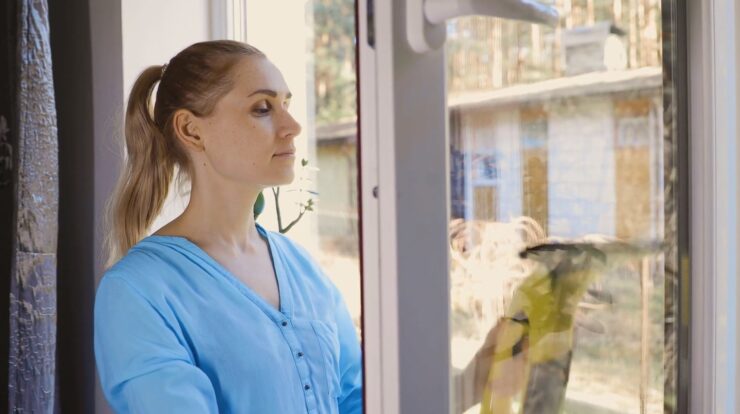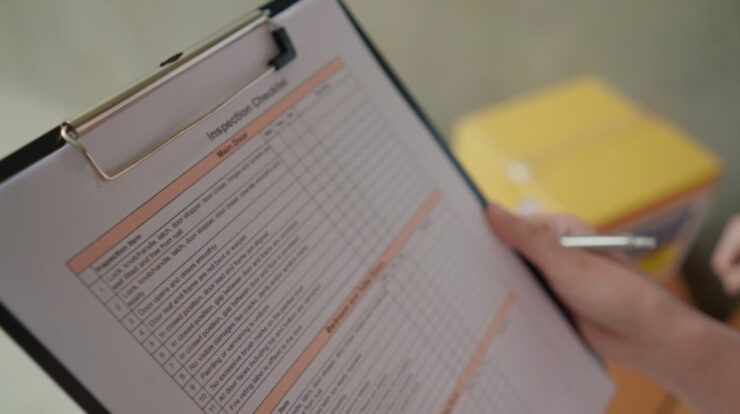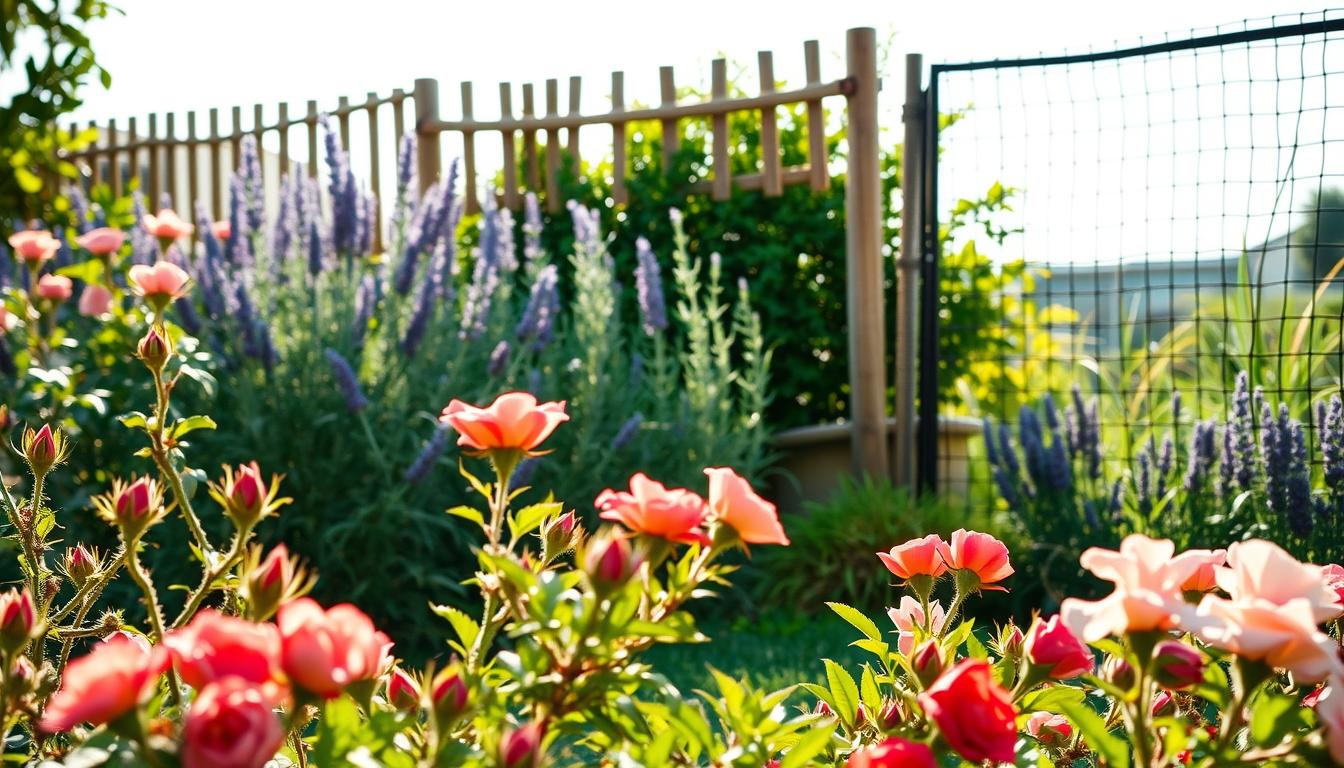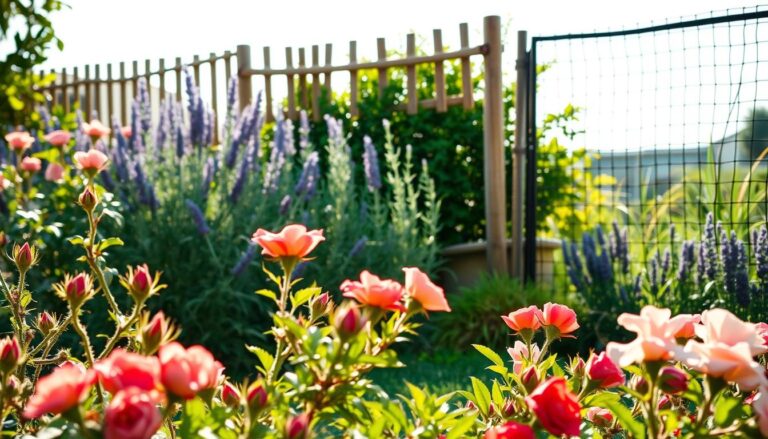Taking the leap to buy your first home? Start by diving deep into your budget. Remember, owning a home isn’t just about that monthly mortgage or the initial closing costs.
Ready to uncover the real deal behind homeownership costs? From upfront fees to monthly expenses and even those unexpected projects, this guide has got you covered. Dive in and see how your dream home fits into your financial puzzle!
The Journey to Your Dream Home: Breaking Down the Costs
So, you’ve got your eyes set on that picture-perfect neighborhood, shortlisted some mortgage lenders, and even got in touch with a trusted local realtor. But the big question looms – how deep should your pockets be to make that dream home yours?
As of July 2022, data from the Census Bureau and the Department of Housing and Urban Development reveals that the average American home will set you back by $439,400. But remember, this isn’t a one-size-fits-all figure! Depending on the home’s size, where it’s located, its age, and its condition, this number can swing quite a bit. So, let’s dive in and decode the real cost of your dream abode!
1. Down Payment
When you’re eyeing that perfect home, one of the first things to consider is the down payment. Think of it as the initial investment in your future abode. Depending on the type of home loan you choose, this can be a percentage of the home’s price that you’ll need to pay upfront.
-
- How much? Well, it varies! Down payments can be as low as 3% or go up to 20% based on your loan type and the home’s price. But don’t fret if you’re a bit short on cash; there are mortgage options that require a smaller down payment to get you started.
2. Closing Costs
Apart from the down payment, there’s another set of costs to consider: the closing costs. These are the additional charges you’ll encounter when finalizing your home purchase.
- How much are we talking? Typically, these costs hover between 3% to 6% of the home’s purchase price. Given the July 2022 median home price, you’re looking at anywhere from $13,200 to $26,400.
- What’s included? While every home sale is unique and state laws can vary, closing costs generally cover fees for applications, legal services, credit checks, property evaluations, and more. Plus, they might also encompass homeowner’s insurance, private mortgage insurance, and an initial escrow deposit to ensure your property insurance and mortgage payments start off smoothly.
3. Moving Costs
Making the Move: Once you’ve got the keys to your new home, it’s time to make the transition. But moving isn’t just about packing boxes; it’s also about budgeting for the journey.
- Hiring Professionals: If you’re thinking of leaving the heavy lifting to the pros, here’s what you need to know:
- Local Moves: On average, hiring movers for a local transition will set you back about $1,400.
- Crossing State Lines: Planning an out-of-state move? Costs can vary widely, ranging from a modest $700 to a whopping $10,000.
- DIY Moves: If you’re up for the challenge and looking to save some cash, consider moving on your own:
- Local Truck Rentals: For those short-distance moves, renting a truck can cost you between $250 and $350.
- Going the Distance: If you’re embarking on a long-haul journey, truck rentals can go up to $2,400.
Monthly Costs of Owning a Home
Once you’ve celebrated closing day, said goodbye to the movers, and unpacked the last box, it’s time to start making the monthly payments. Here are some of the monthly expenses you can expect to pay as a homeowner.
1. Mortgage Payments: Where Does Your Money Go?
Your monthly mortgage isn’t just a simple payment towards your home. It’s a mix of various components, each serving a specific purpose:
- Principal: This portion chips away at the actual amount you borrowed for your home.
- Interest: This is what the bank charges for lending you the money. Think of it as their profit.
- Taxes: Set aside for property taxes, this money is held in escrow and later handed over to local authorities.
- Homeowner’s Insurance: A safety net against potential damages to your home.
- Mortgage Insurance: An extra layer of protection for the bank, ensuring they’re covered if you default on your loan. Not everyone needs this, though!
2. Property Taxes: The Annual Fee
Your home’s location plays a big role in determining your property taxes. Every state has its own rate, and the value of your home and land will finalize the amount. Expect to pay anywhere from $600 to a steep $5,500 annually.
3. Insurance: Protecting Your Investment
Owning a home comes with its fair share of risks, and that’s where insurance steps in:
- Homeowner’s Insurance: On average, you’re looking at about $1,500 yearly. However, factors like where your home is, its size, and its overall condition can influence this amount.
- Flood Insurance: Depending on your region and its susceptibility to floods, your bank might require this additional coverage.
- Private Mortgage Insurance (PMI): If your lender mandates PMI, you’ll be shelling out an extra ½% to 1% of your loan annually.
4. Utilities: Keeping the Lights On (and More!)
Every home hums to the rhythm of utilities. From the glow of lights to the flow of water, these essentials come at a cost:
- Average Utility Costs: Most homeowners set aside around $290 monthly for utilities. This covers essentials like water, electricity, gas, and internet connectivity.
- State Variations: Not all states are created equal when it comes to utility bills. If you’re in Hawaii, New Hampshire, or Connecticut, brace yourself for a slightly heftier average of over $350 each month.
5. Homeowners Association (HOA) Fees: The Community Chest
Living in a community with a homeowners association? Here’s what you need to know:
- Monthly Dues: Being part of an HOA typically means monthly dues. On average, you’re looking at between $200 and $300.
- What’s Covered: Your dues aren’t just for the sake of it. HOAs offer various services, from maintaining shared amenities like pools and parks to stepping in during neighborly disputes.
Home Maintenance and Care Budgeting
From preventive inspections that shield your investment to unexpected repairs that can put a dent in your savings, we’ve covered it all. With a clear understanding of preventive inspections to unexpected repairs expenses, homeowners can better plan, budget, and ensure their homes remain in prime condition for years to come.”
1. Keeping It Clean:
A clean home is a happy home! Here’s what to expect:
- DIY Cleaning: Stocking up on cleaning supplies? Budget around $40 to $50 monthly if you’re rolling up your sleeves and doing it yourself.
- Professional Touch: Prefer a housekeeper’s expertise? They typically charge between $30 to $50 per hour.
2. Landscaping: Your Home’s Green Thumb
First impressions matter, and your yard plays a big part:
- Initial Makeover: Thinking of adding some greenery or a rock garden? Initial landscaping for your yard can set you back about $3,400.
3. Stay Ahead with Preventive Inspections:
An ounce of prevention is worth a pound of cure:
- Routine Checks: Even if you had a home inspection before buying, regular checks every three to five years are a smart move. These comprehensive inspections, covering everything from the roof to the HVAC system, cost between $300 and $400.
4. Chimney Care: Keep the Hearth Happy
A cozy fireplace needs care:
- Annual Sweeps: Ensure your chimney is safe and clean with an annual sweep, costing between $130 and $380. If you have an older home, consider a sweep before and after the main fire season.
5. Roof: The Shield Above
Your home’s protective barrier needs attention:
- Annual Inspections: A yearly check-up for your roof is crucial, especially in areas with harsh weather. Depending on your roof’s size and intricacies, inspections can range from $75 to $800.
6. Repairs
It’s inevitable that, over time, systems and appliances in your home will need repairs. Here’s what you can expect to pay to repair items in your home.
- HVAC: Repairs cost between $100 and $600, depending on the type of system.
- Foundation: Minor foundation repairs will cost about $500, while major repairs can reach over $7,000.
- Insulation: Insulation that’s older than 10 years may no longer meet federal standards for regulating your home’s heat. New insulation costs an average of $5,200.
- Plumbing: From plugging a small leak to replacing old pipes, plumbing maintenance costs anywhere from $175 to $3,000.
- Appliances: Kitchen appliances, washer, and dryer repairs cost around $180, depending on the severity of the issue.
- Painting: Time for a new coat of paint? Interior painting will cost$200 to $1,000 per room while painting the exterior costs around $3,000.
- Electrical: Electrical repairs should always be managed by a professional. Expect to pay about $300 for the cost of hiring an electrician.
- Pests: If you have an unfortunate encounter with a critter in your home, pest control specialists will cost between $200 and $600.
Renovation & Remodeling Costs
One of the perks of owning a home is the joy of personalization. Whether it’s a fresh coat of paint for your cabinets or swapping out old carpets, the possibilities are endless. But, of course, there’s a price tag attached.
Popular Renovations: A Price Spectrum:
The cost of home renovations can swing widely based on the project’s scope and complexity. From minor touch-ups to major overhauls, home renovation projects can range from just a few hundred bucks to several grand.
A Glimpse into Recent Trends:
Angi’s State of Home Spending report shed light on homeowners’ spending habits in 2021. On average, homeowners shelled out about $10,400 on remodeling endeavors.
Plan Before You Hammer:
Before you dive into your dream project, it’s crucial to do your homework:
- Research Costs: Get a clear picture of the expenses tied to your desired renovation. This includes everything from materials and labor to potential maintenance costs down the line.
- Case in Point: If a fence around your property is on your wishlist, factor in the costs of materials, installation, labor, and future upkeep.
FAQ
Is it expensive to make your own house?
Building a house can be expensive, depending on factors like location, materials, design, and labor costs. However, constructing your own home allows for customization, potentially leading to long-term savings if you prioritize energy efficiency and other cost-effective features.
What are the disadvantages of living in a house?
Living in a standalone house comes with responsibilities like maintenance, yard work, and higher utility costs. Houses can also be less secure than apartments in managed complexes, and they might not offer the same level of community amenities, such as a gym or pool.
Is it better to buy or make a house?
The decision to buy or build a house depends on individual preferences, budget, and timeline. Buying a house is typically faster and offers the convenience of moving in right away. Building a house, on the other hand, allows for personalization and the possibility of incorporating the latest technologies and designs, but it requires more time and can sometimes be more expensive.
What is the cheapest home to build?
Prefab or modular homes, tiny houses, and homes made from alternative materials like shipping containers tend to be among the cheapest to build. Their compact size and efficient use of materials often result in lower construction costs.
How to build a cheap home?
To build an affordable home:
- Consider buying a smaller land for your house as it cheaper
- Opt for a simple design with a smaller footprint.
- Choose cost-effective materials and building methods.
- Consider DIY approaches for parts of the construction, if you have the skills.
- Research and compare contractor quotes.
- Prioritize essential features and consider future upgrades for non-essential ones.
Final Words
Owning a home is a significant milestone and a dream for many. However, it’s essential to be well-informed about the various costs associated with homeownership. From the initial purchase to monthly expenses, renovations, and unexpected repairs, being prepared financially will ensure a smooth and enjoyable homeownership journey.
Whether you’re a first-time homebuyer or considering a renovation project, this guide aims to provide clarity on the costs you might encounter. Happy homemaking!

